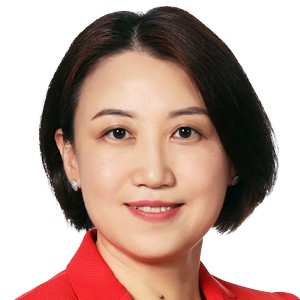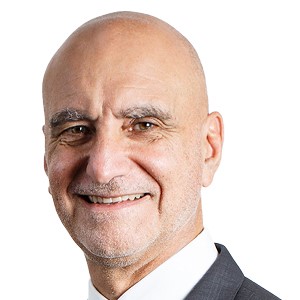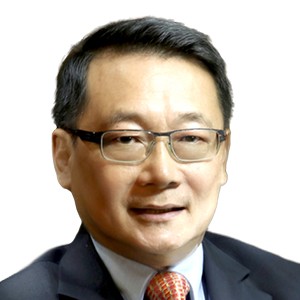Leaders of global organisations face rising expectations as volatility and opportunity continue to shape the current landscape. In this state of flux, heads of regional and global teams are being asked to monitor and respond to geopolitical, technological and regulatory changes in real time, while ensuring the right decisions are made to maximise performance.
We’ve selected four excerpts from our Community of leaders in Asia, offering reflections on how to deliver on an organisation’s global vision.
As a regional CFO, I see my role as much more than just overseeing finance. I believe and trust that a regional CFO is a key business leader who can really help shape the strategic direction of the company across the diverse market we have here in Asia. This would involve not only managing financial performance, but also driving business growth, innovation and long-term sustainability in this market.
What I would really focus on is consistently delivering accurate and timely financial information, offering strategic insight and helping them [global leaders] to allocate resources and capital to support the highest growth areas, or to focus on our strategic focus areas.
I see myself as a proactive partner in all those decision-making processes, to provide my unique insight and perspective to the table for the leaders to consider… I also want to emphasise the importance of aligning financial performance with the company's vision and long-term strategies, and ensure that we make informed decisions together with our business leaders.
Listen to the full Criticaleye Asia Podcast with Echo here
When I jumped into the [regional leadership] position [at Danone], I quickly realised that … [it] was not that simple. The first realisation was obvious: [there were] multiple stakeholders throughout the organisation, but also external stakeholders. I … [wanted to] implement my vision of business development, my leadership style and people development.
But then what you realise is there are huge number of things that are quickly overwhelming you... [W]hat is your boss's expectation? What is the global teams’ expectation of you? You have to better understand the countries. The reality is … you have to spend a lot of time going [to countries in the region].
You have to deliver the results, simply because that's why you have been appointed… [Y]ou have to follow the flow of the budget cycle; the strategy planning cycle; the reporting cycle; and you have to manage your team; you have to step up to your leadership role; and be recognised as the leader of this organisation. That’s a lot of things to absorb from the very beginning.
Listen to the full Criticaleye Asia Podcast with Pascal here
Benny Goh, founder and Managing Director, Parami Solutions and Criticaleye Board Mentor:
In today's world, we are beginning to see that each region, each market, requires local leaders to behave differently, [and] be given sufficient empowerment to make good decisions for the good of the company. Good governance is also the foundation of agility …. So take, for example, this idea of decentralised empowerment, or enabling the balancing of speed with accountability [which] allows for quick success during times of crisis.
For example, Unilever [demonstrated] good governance during the Covid crisis – they allowed local communities to behave [independently] and empowered [them] to provide a [different] kind of relationship with their customers in each market, for example [in] India and Indonesia. As such, when they came out of Covid, the brand recognition [and] the relationships were very strong. Consequently, they have a much better positioning thereafter. A strong governance model allows you to empower decision making locally, while you're aligned in a global sense.
Listen to the full Criticaleye Asia Podcast with Benny here
Will Lv, General Manager, China, Flywheel Digital:
I think there's two key factors that are really important. One is transparency throughout the organisation. That means the mission at the global level gets carried out, transmitted and cascaded down to even the most junior member of the team. I think it's critical that everyone in the organisation shares that vision, believes in it and drive towards it.
Secondly, … we need to be caring, because a business is comprised of people. We are single individuals that make up the organisation. … Whether they're located in the US, Europe, China or other parts of APAC. Wherever the region is, I think it's important to show that we care about the team and we're going to work together… to achieve that mission. Those, I believe, are the most important components to make sure that the global mission will stay intact throughout the organisation, regardless of geographic location.



